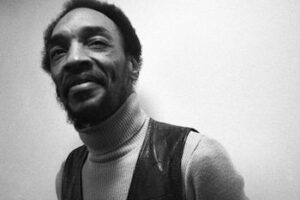
Sam Rivers
*Sam Rivers was born on this date in 1923. He was a Black jazz musician and composer.
Samuel Carthorne Rivers was born in El Reno, Oklahoma, United States. His father was a gospel musician who had sung with the Fisk Jubilee Singers and the Silverstone Quartet, exposing Rivers to music from an early age. His grandfather was Marshall W. Taylor, a religious leader from Kentucky. During World War II, Rivers was stationed in California in the Navy. Here, he performed semi-regularly with blues singer Jimmy Witherspoon.
Rivers moved to Boston, Massachusetts, in 1947 and studied at the Boston Conservatory with Alan Hovhaness. He performed with Quincy Jones, Herb Pomeroy, and Tadd Dameron. In 1959, Rivers began performing with drummer Tony Williams. Rivers signed with Blue Note Records and recorded four albums as a leader, making several sideman appearances.
The first of his Blue Note albums, Fuchsia Swing Song (1964), adopts an approach sometimes called "inside-outside". As a composer in this period, the ballad "Beatrice" from Fuchsia Swing Song has become an important standard, particularly for tenor saxophonists. Rivers was briefly a member of the Miles Davis Quintet in 1964; his tenure with the quintet was brief. Rivers derived his music from bebop, but he was an adventurous player adept at free jazz.
In the early 1990s, he and his wife Beatrice moved to Florida to expand his orchestra compositions with a reading band in Orlando. This band became the longest-running incarnation of the RivBea Orchestra. He played regularly with his Orchestra and Trio. From 1996 to 1998, he toured and recorded three projects in France. In 1998, with the assistance of Steve Coleman, he recorded two Grammy-nominated big-band albums for RCA Victor with the RivBea All-Star Orchestra. During the late 1990s, he appeared on several albums on Postcards Records.
In 2006, he released Aurora, a third CD featuring compositions for his Rivbea Orchestra and the first CD featuring members of his working orchestra in Orlando. Though most famously a tenor saxophonist, he also performed on soprano saxophone, bass clarinet, flute, harmonica, piano, and viola. Active in jazz since the early 1950s, he earned wider attention during the mid-1960s spread of free jazz. With a thorough command of music theory, orchestration, and composition, Rivers was an influential and prominent artist in jazz music. Sam Rivers died from pneumonia on December 26, 2011, at 88 in Orlando, Florida.
To Become a musician or Singer
To Become a Conductor or Composer